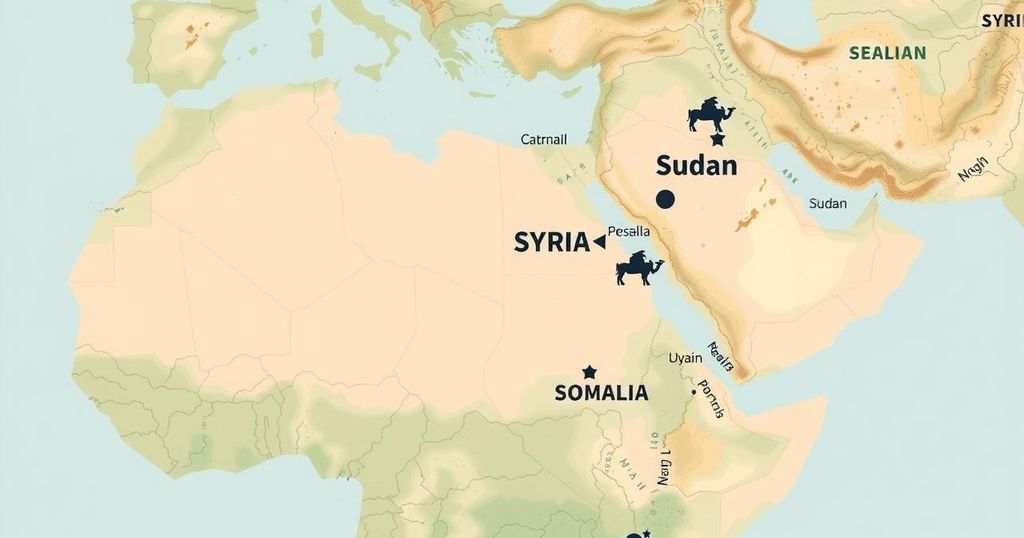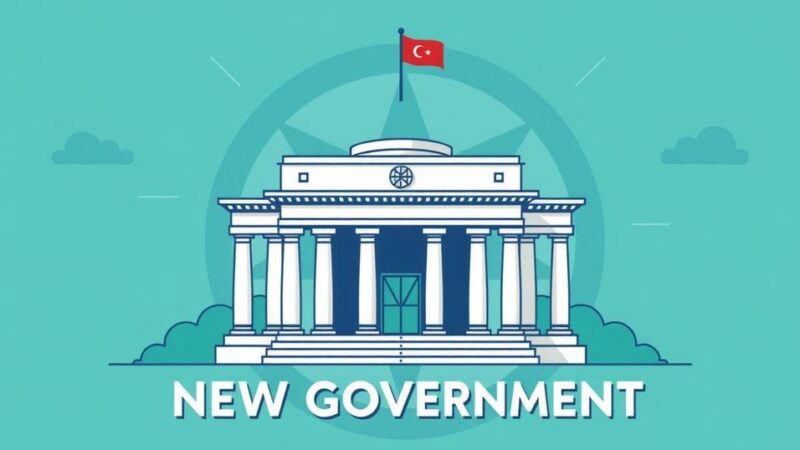The U.S. and Israel are exploring Syria, Sudan, Somalia, and Somaliland as potential new homes for Gazans. Despite efforts, many Arab nations oppose the relocation, predicting challenges in diplomatic relations and acceptance. The discussion remains complex and fraught with rejection from the involved countries.
The search for alternative homes for around 2 million Gazans continues, as the United States and Israel explore potential destinations including Syria, Sudan, Somalia, and Somaliland. Despite an intention to facilitate relocation, early reactions suggest that these efforts are unlikely to succeed.
Former President Donald Trump previously announced plans for the U.S. to ‘take over’ Gaza, suggesting the population would be relocated to a more desirable location. His predictions included the notion that, post-evacuation, Gazans would not desire to return after reconstruction efforts. However, many Arab nations have publicly rejected Trump’s proposals, insisting they will not accept displaced Palestinians.
Relations with the four targeted countries are intricate, particularly with Syria, where the Trump administration reportedly attempted communication through a third party with President Ahmad al-Shara. He publicly condemned the evacuation plan, labeling it a “serious crime that will ultimately fail.” Yet, a senior Syrian official claimed no such contacts had occurred.
Additionally, while the U.S. and Israel reached out to Sudan and Somalia regarding the evacuation, Sudanese military chief Gen. Abdel-Fattah Burhan firmly stated that Sudan ‘categorically rejects’ the transfer of Palestinians. Reports indicated that the U.S. offered military help and reconstruction support, which were promptly declined.
For Somalia, a country that has historically supported Palestinian causes, its ambassador stated, “neither the U.S. administration nor Israeli authorities have approached the Somali government regarding any proposed relocation of Palestinians to Somalia.” Previous attempts at diplomatic relations between Somalia and Israel have also proven unsuccessful.
Somaliland, a region with declared independence since 1991 but lacking formal recognition, presents a potentially viable option. Its strategic location and political stability, along with established connections to the UAE—which holds close relations with Israel—could facilitate discussions. Reports suggest that there have been quiet conversations regarding American support in exchange for recognition of Somaliland’s status.
In summary, the discussions by the U.S. and Israel regarding potential new homes for Gazans in Syria, Sudan, Somalia, and Somaliland face formidable challenges. The rejection from Arab states, complex diplomatic relations, and the historical context surrounding each country’s stance severely complicate any relocation efforts. The likelihood of finding a receptive environment for the Gazan population remains low, with ongoing opposition from the involved nations.
Original Source: allisrael.com






